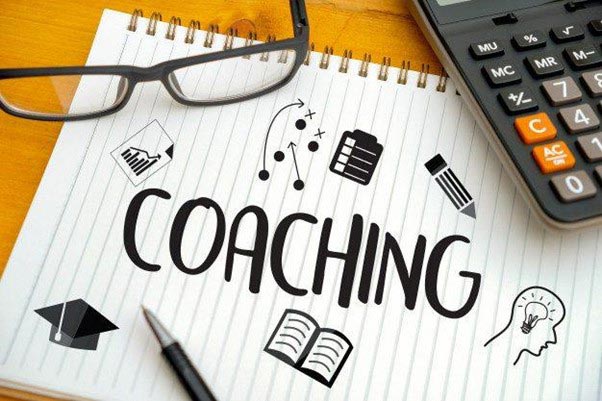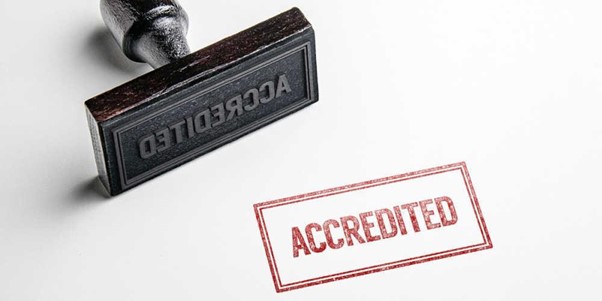The Importance of Accreditation in Coach Training Programs

The Role of Accreditation in Coach Training Programs: Why It Matters
Accreditation is a process of evaluation and recognition that evaluates the quality of an educational program.
It verifies that a specific coaching training program meets certain academic standards and offers the necessary skills and knowledge to prepare coaches for success.
This type of review helps ensure that organizations, institutions, employers, and other stakeholders can make informed decisions about the quality of a coaching program.
Accreditation is voluntary and requires organizations to meet certain criteria set by an external body.
What Does Accreditation Involve?
Accreditation involves assessing a coaching training program against specific standards developed by an accrediting agency, such as the ICF, International Coaching Federation.
These standards encompass a range of criteria, including curriculum design and content, faculty qualifications and credentials, student records, and program outcomes.
The accrediting body reviews the program to ensure it meets these criteria and provides evidence that the training meets industry standards.
The Benefits of Having an Accredited Program
Accreditation is an important indicator of quality. It assures potential students and employers that the program meets certain standards and is a worthwhile investment.
Accredited coach training programs have been evaluated by experts in the field, and offer students access to specialized knowledge and resources that are not available elsewhere.

They also provide opportunities for professional recognition, as many organizations require their members to complete an accredited program.
Common Misconceptions about Coach Training Programs
Coaching is an innate skill and cannot be learned
One of the biggest misconceptions about coach training is that coaching is an innate skill that cannot be learned or developed.
The fact is that, while some individuals may have a natural talent for coaching, effective coaching requires specific skills and techniques that can be learned through proper training.
Coach training programs provide coaches with the tools and techniques they need to improve their coaching practice.
Coach training programs lack rigor and quality standards
Another common misconception is that coaching training programs lack rigor and quality standards.
This is far from the truth. In Singapore, several of the best coaching certification programs (link to the other article “How to Select The Best Coaching Certification Program”) are accredited by leading coaching bodies such as the International Coach Federation (ICF) and the Association for Coaching (AC).
These organizations offer well-structured and rigorous training programs that adhere to international coaching standards.
Coach training programs are expensive
Some aspiring coaches may shy away from coach training programs assuming they are expensive. While it is true that some programs can be costly, there are also affordable and flexible training options available. Check out Coaching Courses Singapore website for more details.

For instance, there are online coach training programs that are less expensive compared to traditional classroom training.
In addition, some organizations offer installment payment plans to help aspiring coaches pay for their training in phases.
Coach training programs are only for those who want to become full-time coaches
Despite the increasing popularity of coaching, some people still think that coach training programs are only for those who want to become full-time coaches.
Coaching skills are relevant and valuable even for professionals in other fields such as HR, leadership, and management.
Coach training can help these professionals develop their coaching skills and gain insights into how coaching can be used in their respective fields.
Coach training programs are just theoretical and lack practical application
Finally, some people think that coach training programs are just theoretical and lack practical application.
This is far from the truth. Most coach training programs include both theoretical and practical components that allow coaches to apply what they have learned in real-life situations.
In addition, some coach training organizations offer mentor coaching programs where coaches can receive feedback and support as they apply their coaching skills in practice.
Tips for Choosing a Quality Coaching Program
Check the program's credentials
Before you sign up for any coaching program, it’s important to check the credentials of the program to ensure that it’s reputable. Check for certifications, accreditation, or any industry-recognized affiliations associated with the program.
The Program's Track Record
The program’s track record can be a good indicator of its effectiveness. Research the program and find out what its success rate is, and how well its alumni are doing now.
The Coaching Style
Different coaches use different coaching styles. Consider a program whose coaching style is in line with your own personality and delivery style. Moreover, consider programs that offer flexibility in how you deliver your coaching.

The Instructors
The effectiveness of a program can depend heavily on who is instructing or even who is facilitating the program. Research each instructor – their coaching style, and experience level.
A good indication would be instructors with extensive experience running their own successful coaching businesses.
Program Duration
Some coaching programs are intensive, taking only a few days or weeks, while others are longer and more flexible. Consider a program that aligns with your schedule and timeline.
Moreover, check if you can take on the program commitments relative to what currently requires your attention.
Availability of Continuing Education
Continued education and training are essential for every growing coach, and finding a program that offers such is important. Check to confirm if the program provides continued follow-up or support in any form.
Program Costs
The costs of enrolling in a coaching program range greatly, depending on factors such as reputation, program format, and amenities. Consider which class of program you wish to take based on your budget.
Feedback from other participants
You can get insight into what the coaching experience is really like by speaking to past participants or reading their reviews.
It’s a good idea to research online forums or speak to other coaches in your network to get an idea of the coaching program’s reputation.

Curriculum and Structure
With so many coaching programs available, it’s important to find one that aligns with your goals and objectives.
Go through the program curriculum to find out what it covers and confirm it provides the relevant educational field for what you wish to specialize in.
Practical Application
Lastly, when choosing a quality coaching program, consider one that enables you to practice the skills you learn right from the start. It might even be worth checking if coached sessions are offered with real clients.
Conclusion
Accreditation is an important indicator of quality in coach training programs. It helps ensure that the program meets certain standards and offers the necessary skills and knowledge to prepare coaches for success.
When researching potential coaching programs, it is important to look for accreditation from a reputable agency to ensure that the program is of high quality.
Additionally, researching the program’s curriculum, outcomes, and faculty credentials can help students determine if it is the right fit for them.
Ultimately, taking the time to research and compare programs will help ensure that you enroll in an accredited coaching program that meets your needs.
Learn more.
The Importance of Accreditation in Coach Training Programs Read More »








